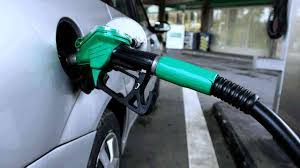Petrol prices in Nigeria could rise as high as N1,000 per litre in the coming weeks, as global crude oil markets respond to escalating geopolitical tensions in the Middle East, particularly between the United States and Iran. The situation has been further compounded by foreign exchange volatility and changes in domestic supply chains.
Global oil benchmark Brent crude traded at about $77.01 per barrel as of Sunday, with Nigeria’s key crude grades—Bonny Light, Brass River, and Qua Iboe—hovering around $78 to $79 per barrel, up from the recent average of $66. Analysts project that prices may cross $80 this week if tensions persist, especially following coordinated US-Israeli airstrikes on Iran’s nuclear infrastructure and Tehran’s potential closure of the Strait of Hormuz, a chokepoint that handles nearly 20% of global oil supply.
Reacting to these developments, Olatide Jeremiah, CEO of PetroleumPrice.ng, warned that private depots are preparing to hike ex-depot petrol prices. “If crude oil prices hit or exceed $80 per barrel, depot owners will likely increase petrol to N1,000 per litre,” he said. “Only continued supply from Dangote Refinery at current rates can temporarily shield Nigerians from this surge.”
On Friday, the Dangote refinery adjusted its petrol prices from N825 to N880, prompting partners like MRS Oil to sell at N925 to N955 per litre in Lagos and the South East. Meanwhile, prices in the North have reached N980 to N990, with some areas nearing N1,000 due to added transportation and logistics cost. Chinedu Ukadike, National Publicity Secretary of the Independent Petroleum Marketers Association of Nigeria (IPMAN), confirmed that the rise in crude prices and naira depreciation have forced marketers to review their strategies. “The instability in the international oil market, driven by the Israel-Iran conflict and exchange rate volatility, is directly impacting local petrol pricing,” Ukadike said.
According to him, marketers now spend significantly more to lift 50,000 litres of fuel, while the Dangote refinery and other importers adjust prices in line with global trends. “Dangote still buys crude oil at international rates, which eliminates any major price advantage,” he noted.
Recent ex-depot prices from various suppliers show a steep climb:
- Rainoil: N850 to N900
- Fynefield: N930
- Mainland: N920
- Matrix Warri: N910
- NIPCO: N895
- SGR: N930
Petrol retail prices now range from N925 to N960 in many areas, with Lagos still selling at the lowest average due to proximity to key supply routes.
Despite the Federal Government’s 2025 budget pegging oil at $75 per barrel, current prices have exceeded the benchmark by $3, which may bring temporary fiscal relief but also comes with downside risks such as inflationary pressures and increased transport costs for consumers.
Jorge Leon, head of geopolitical analysis at Rystad and former OPEC official, said that oil markets have already priced in some risk, but a breakout above $80 per barrel could lead to sharper hikes in global energy prices. Ole Hansen of Saxo Bank added that prices could open $4–$5 higher on Monday depending on market sentiment.
However, Giovanni Staunovo of UBS warned that the trajectory of oil prices will depend on whether the Strait of Hormuz is formally closed and if broader supply disruptions follow. “If there’s de-escalation, the risk premium will fade. But any disruption could mean significantly higher oil prices globally,” he said.
The Nigerian National Petroleum Company Limited (NNPCL) is also expected to review its pump price in line with the new market conditions. Given Nigeria’s heavy reliance on imported fuel and crude-fed domestic refining, the global price hike is likely to ripple through the supply chain quickly.
With the Middle East crisis intensifying and Iran hinting at further retaliation, Nigeria’s fuel prices remain vulnerable. Analysts warn that unless the conflict is resolved soon or local supply stabilises through consistent production from Dangote or other refiners, consumers may need to brace for higher pump prices across the country.
